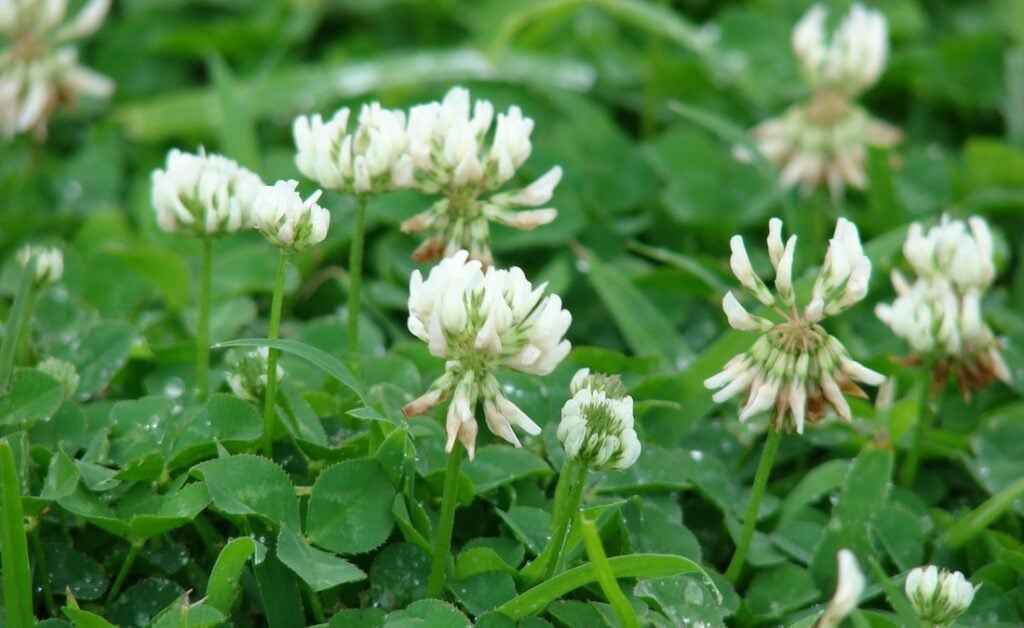Clovers were quite prominent on gardens before the world war. Most people didn’t mind them, and they seemed to have been very beneficial. But why do we consider them weeds nowadays?
Clover seeds were part of the lawn seed mix. They were extremely helpful in keeping gardens healthy. Then when petrochemical-based weed killers were made, they were classified as weeds by marketing teams to be able to sell you their products.
Let’s Learn More About the Clover
Back in the day, clovers were not deemed as weeds. Quite the contrary, they were the very reason why gardens were healthy then.
Clovers are classified as herbs and are pretty standard in temperate climates. They are short-lived and have alternating compound leaves that look like three-toothed leaflets. They have fragrant flowers that are crowded into spherical heads. These flowers come in white, pink, yellow, or red.
Clovers are known to be loved by livestock for their taste. They are also high in protein, calcium, and phosphorus. In addition to being suitable for grazing animals, clovers improve the quality of the soil by releasing nitrogen. (Source: Britannica)
Is the Clover a Victim of Bad Branding?
The quick answer to the question would be; yes. Clovers were not always treated like they were weeds. They just got branded as one. The Trifolium repens variant of clovers has been domesticated for centuries; these were primarily used for foraging livestock.
Clovers are very common in Mediterranean areas, but it was brought to the United States in 1747. It was widespread during the colonial days that Benjamin Franklin noticed the clover improving the quality of the pastures. Today, we can find them practically anywhere. Even in places where climates are polar opposites, they grow in abundance.
Sadly, not everyone remembers the benefits of having clovers.
In addition to being beautiful with small, round, cool green leaves and white flowers, clover provides many ecological services.
Melissa Sharapova, Permaculture and Landscaping Expert
While most lawn seed mixes back then had clover seeds incorporated, they were phased out when agricultural chemical companies started selling herbicides—claiming that these chemicals would kill everything else except grass. They insisted the clovers were weeds and that they were harmful to your garden.
Prior to World War II, lawn grass seed mixes actually contained clover seed. By the 1950s, with aggressive marketing by chemical companies of synthetic herbicides, clovers became identified as a weed.
Melissa Sharapova, Permaculture and Landscaping Expert
One thing is for sure; it’s not too late to avoid the chemicals and reintroduce the fun, soft, and green carpet of clovers back.
(Source: Lawn Starter)
How Can Clovers Help Our Gardens?
Commercial agriculture companies don’t tell you that the clover can do the same thing their fertilizers and herbicides do.
Clovers are a beneficial addition to turfgrass because they fix atmospheric nitrogen into soil fertilizer, with the aid of root nodules and colonies of symbiotic bacteria. The clover also draws up and accumulates trace minerals. When clovers decompose, it makes minerals available to lawn grass and soil life. This makes the grass more disease resistant.
Melissa Sharapova, Permaculture and Landscaping Expert
This basically means that if you have clovers growing in your garden, you wouldn’t need synthetic fertilizers at all. (Source: Lawn Starter)
